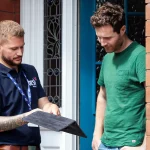INCA Calls on Lords to Address UK Broadband Woes for Remote Working

The Independent Networks Co-operative Association (INCA), which represents many of the UK’s alternative broadband operators, has today proposed several priority recommendations to help address – as part of a Lords Select Committee inquiry – the gaps in critical broadband infrastructure that could be holding back home-based working.
Just to recap. The Home-based Working Committee (Lords Select Committee) launched a call for evidence to support its inquiry into remote and hybrid working in the UK earlier this year (here). The inquiry said it would look to “address the challenges and opportunities of remote and hybrid working for workers and employers, the impact of remote and hybrid working on productivity, and any wider consequences of remote and hybrid working for the UK economy and society.”
INCA states that its submission to the inquiry, along with that of techUK, was the only written evidence to focus squarely on the role of digital connectivity in enabling flexible working. It highlighted both urban and rural challenges that it says “continue to restrict equal access to remote employment opportunities“.
Advertisement
In particular, INCA put forward several priority recommendations to the Inquiry, including those below that seem to focus more on driving take-up than expanding infrastructure coverage.
INCA’s Remote Working Recommendations
- Addressing connectivity gaps in urban ‘not-spots’ and multi-dwelling units (MDUs).
- Complementing gigabit coverage goals with a national campaign to drive adoption and digital literacy.
- Aligning home-based working goals with the Government’s own Digital Inclusion Action Plan to support marginalised demographics.
Paddy Paddison, CEO of INCA, said:
“Working from home is not a luxury, it is increasingly an economic necessity for individuals, families and businesses across the UK. But unless people have access to fast, reliable full-fibre broadband, the right to request flexible working is effectively meaningless. The Government must now act on the Committee’s findings to address the digital divide once and for all.
There’s a risk we focus too much on infrastructure rollout and not enough on adoption. We need joined-up thinking that connects investment in gigabit networks with efforts to increase take-up and confidence among users.
INCA stands ready to support government and industry in delivering a future where digital connectivity underpins fair access to employment for all.”
The government would no doubt argue that it’s £5bn Project Gigabit broadband roll-out, as well as the £1bn industry-led Shared Rural Network (SRN) project, are both helping to support the industry in expanding digital connectivity much deeper into the country. But both are more focused upon tackling poorly served rural areas than urban ones.
However, the government’s direction on tackling issues of MDU access remains unclear (here), and at the same time it’s still too early to assess the impact of their recent decision to open up gigabit broadband vouchers for urban areas (here). The latter is not as consumer friendly or accessible as it once was, which doesn’t help.
The idea of aligning home-based working goals with the Government’s own Digital Inclusion Action Plan (DIAP), which is currently attempting to address the lack of digital inclusion in some areas via a series of “urgent actions” that it hopes will “begin fixing digital exclusion“, is a fair suggestion. But it does have caveats.
Advertisement
The DIAP includes funding for local initiatives targeted to the most digitally-excluded groups (e.g. the elderly and low-income households), while also partnering with inclusion charity Digital Poverty Alliance (DPA) to provide laptops to people who are digitally excluded. But this also includes people who simply refuse to go online, which is a sizeable portion of those who don’t have the internet at home. Suffice to say that the impact of aligning remote working goals with the DIAP will probably be quite limited.
Mark is a professional technology writer, IT consultant and computer engineer from Dorset (England), he also founded ISPreview in 1999 and enjoys analysing the latest telecoms and broadband developments. Find me on X (Twitter), Mastodon, Facebook, BlueSky, Threads.net and Linkedin.
« UK Fibre Awards 2025 Name Winning Broadband Operators






















































% of properties without sufficient connectivity for home working?
Surely choosing not to go online is a CHOICE. People should not be negatively impacted by that choice but are increasingly so , in every aspect .SCAMS are rife in telecommunications both online and by phone . The telecommunications industry and government should be doing far more to halt this illegal activity.
Whilst ensuring connectivity of FFTP gigabit capable broadband for all this should be without the unnecessary overbuild of infrastructure
Choosing not to go online is a choice. A company or organisation choosing not to serve you because you refuse to go online is a choice they are perfectly entitled to make. If 95% of their customers choose to do it online then they can probably afford to discard the other 5%. It’s the tyranny of the majority but that’s the way it is.
“But this also includes people who simply refuse to go online”. A the risk of stereotyping I would say the vast majority of these will be pensioners and Father Time will eventually deal with this. My late father didn’t have a clue and quite frankly trying to teach him was an exercise in bashing your head against a brick wall. He could barely operate the most basic of mobile phones.
I welcome INCA’s taking-up the case of residents of MDUs. We have at least two fibre runs passing the property but the availability checkers all report that full-fibre is not available.
There is a secondary concern regarding MDUs which also applies to the wider market, and that is around potential restrictive contracts locking users of the fibre connection to the ISP(s) of the connection provider. Ofcom should be looking to regulate all fibre network owners to provide whiolesale services and allow all ISPs to provide service over their networks.
Sorry, the above post was not meant to be a reply to your comment.
It would be good to see upload speed talked about more and legislation improved. FTTP won’t be everywhere for a long time.
We really should look at bringing in better minimum upload speed requirements. USOs 1Mb requirement isn’t enough for 2 people to work from home and be on teams at the same time.
“FTTP won’t be everywhere for a long time. ”
Unfortunately very true. This country is more than decade behind of where it should have been by now with regards to the availability of fibre broadband!
> FTTP won’t be everywhere for a long time.
Yep. It’s feast or famine at the moment when it comes to FTTP. Openreach is now building in my city, bending over backwards to give a second or third gigabit capable broadband to people who already have 1 or 2 gig-capable providers.
There is no solution in sight, especially for some of us who live in ignored/excluded /urban/ areas. It could be another 4-5 year wait for us while we struggle on unreliable copper based broadband.
And the 5G “revolution” seems to have died with barely a whimper. And with 3G switched off, we have effectively been cut off from mobile data in many places in the city. Especially if you are with Three, Vodafone or O2.
There is no intent to provide fibre everywhere. There are also targets in place set by Ofcom that will see “full-coverage” within the next few years.
Those working from home infer that they are doing an activity of employment and earning as a consequence. Therefore costs of communications can be put against their tax (individual or employer).
Speeds vary and peoples needs vary, but there are alternatives people can pursue whether that is duplication of fixed broadband, mobile broadband (outside coverage with external antenna/CPE), Starlink etc. Others could consider communal hubs in the nearest village/town. Communications has to part of the decision to work from home rather than the office or local hub.
Government subsidy should be for basic digital access to all and so the USO should now be upgraded to something like 40/10 and a formal method of funding whether rural or isolated urban and obligated on landlords This may provide a stimulus to the issues.
Technically I still don’t understand why Fibre To The Kerb or FTTB using G.Fast to the actual premise is not being used to utilise existing copper connection on remote homesteads, farms and MDCs. I know its not desirable in a FTTP focused world but if it can give people faster broadband quicker as an expedient then why not.
I’m inclined to agree with the theme of this argument, it’s right that subsidy is used where required to get everyone a basic level of connectivity required to interact with government services. I’m less sold on the idea that public funds need to uplift capable FTTC to gigabit so that people can move large amounts of data around in order to work from home. If we accept the premise that there’s a limit on public spending then I’d rather see that investment going into public transport so that e.g. villages aren’t only accessible by private car or taxi unless your requirements line up with a twice daily bus service, which has far reaching benefits not just related to employment.
fibre is cheaper in the long run. it is as simple as that. Australia tried all these weird and wonderful fibre alternatives and none of them have met the performance promises or achieved cost savings and a lot of it is now being replaced with FTTP.
BT presumably came up with the same result in lab tests and trials, which is why FTTDP never went anywhere and why G.fast FTTC was only used as a competitive response to Virgin’s HFC. if you’ve got to run fibre 99% of the way, it makes more sense to keep going with glass than to put an expensive and fragile piece of electronics on the end of it.
the UK needs to get out of the penny pinching mindset.
G.fast provisioning by BT Openreach so that resources could be allocated to completing the FTTP roll-out.
There should eb no government subsidy. It is unrealsitic to expect government funding for every aspect of life.
‘Only’ 14% cannot get 1G now to put this into context. And decreasing.
An interesting? question is how to give MDUs access to multiple suppliers. Remote properties can have Starlink.
Whatever happened facility management companies renting out fully equipped workspace in towns to firms for use by locally situated employees ?
In outer London, there is so much abandoned modern office space for which the only sanctioned use now is to convert it into residential accommodation, instantly turning the new occupants into commuters.Ludicrous.
Workspace units on the outskirts of major towns could save a full commute to the centre or another town. Might fit in well with the out-of-town retail or commercial parks.
Ok, that may only work for bigger firms with large workforces, but a starter for ten could be the same deal using fully plumbed-in portacabins in the local car parks.
Given what the CEO of BT indicated as being their possible attitude to a full extension of FTTP to all residential areas, a location such as a commercial or retail park, where services are already laid in, may be the only answer to getting a high speed connection.
I have three businesses nearby (in this part of London) offering ad-hoc workplaces and leasable suites. Most of the time they seem to be under-used. If the demand existed I expect more would be setup.
Brent Cross shopping Centre in NW London is a classic example. Last YT video I’ve seen showed shops converted into revision centres for schoolkids, . . though it also showed brothers-in-arms to the dinghy dodgers steaming the location and attempting to steal the kids laptops and mobiles . . but only because the security presence was inadequate.